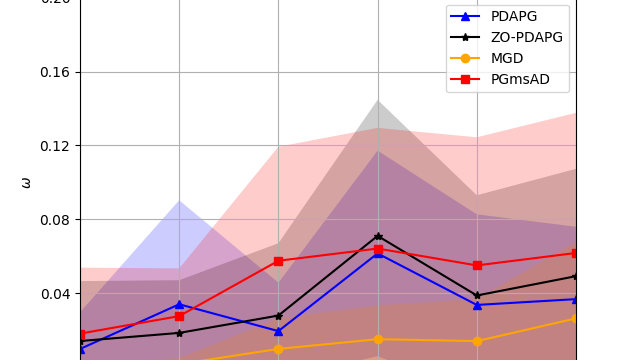Authors: Huiling Zhang, Zi Xu, Yuhong Dai
Published on: January 26, 2024
Impact Score: 8.54
Arxiv code: Arxiv:2402.03352
Summary
- What is new: The first two zeroth-order algorithms with iterative complexity guarantees for solving nonconvex-(strongly) concave minimax problems with coupled linear constraints under deterministic and stochastic settings.
- Why this is important: Addressing nonconvex minimax problems with coupled linear constraints in areas like machine learning and signal processing, which are challenging due to their complexity.
- What the research proposes: Introducing two single-loop algorithms, ZO-PDAPG and ZO-RMPDPG, for deterministic and stochastic settings of these problems, enhancing efficiency and solution precision.
- Results: Achieved iteration complexity of $\mathcal{O}(\varepsilon ^{-2})$ (deterministic nonconvex-strongly concave) and $\tilde{\mathcal{O}}(\varepsilon ^{-3})$ (stochastic), showing significant improvements in solving these problems efficiently.
Technical Details
Technological frameworks used: nan
Models used: Zero-order primal-dual alternating projected gradient (ZO-PDAPG), Zero-order regularized momentum primal-dual projected gradient (ZO-RMPDPG)
Data used: nan
Potential Impact
Machine learning, signal processing industries, and any sector involved in adversarial attacks in resource allocation and network flow problems.
Want to implement this idea in a business?
We have generated a startup concept here: OptiFlow AI.


Leave a Reply